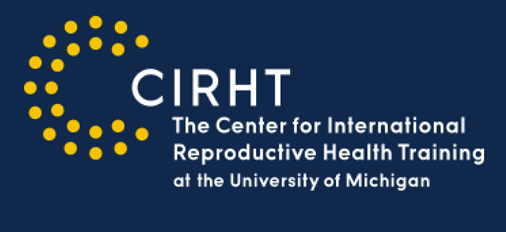Speaker
Description
Background: Low self-efficacy concerning reproductive healthcare seeking remains a significant concern that can lead women to seek unsafe abortions in developing regions. Perceived self-efficacy, a woman's belief in her ability to act, may play a vital role in navigating barriers to safe abortion. While existing literature has explored the influence of self-efficacy on general healthcare utilization, research focusing specifically on safe abortion services remains limited. So, this study aimed to assess perceived safe abortion self-efficacy and care-seeking experiences among reproductive age women in Ethiopia.
Methods: This community-based cross-sectional study was conducted in the Wolaita zone, Ethiopia, from February to May 2024. A mixed-methods approach was employed, involving a quantitative survey of 845 randomly selected women of reproductive age (15-49 years) and in-depth interviews with 14 women with a history of induced abortion in the past five years, ensuring a diverse range of experiences related to induced abortion. Quantitative participants were recruited using a multi-stage sampling technique involving lottery selection of seven districts and then kebeles within them, followed by systematic sampling of households. Women reporting a history of induced abortion during the quantitative survey was invited for the qualitative interviews. The outcome variable was the perceived self-efficacy on safe abortion regarding safe abortion, measured using an adapted and validated scale. Socio-demographic characteristics, knowledge of safe abortion, and attitude towards safe abortion were also assessed. Quantitative data was analyzed using descriptive statistics, and multivariable logistic regression to assess the associated factors with perceived self-efficacy, adjusting for covariates. Qualitative data was analyzed using thematic analysis and triangulated with the quantitative findings.
Results: The quantitative survey included 815 women of reproductive age (mean age 25.87 years, SD ± 6.45), a subset of whom also participated in qualitative interviews. In this study, 35.8% exhibited high self-efficacy related to accessing safe abortion services. Multivariate analysis identified being employed, receiving abortion information from media, believing abortion to be legal for unmarried women, knowing someone who has induced an abortion and having favorable attitudes toward perceived safe abortion self-efficacy as significantly associated factors. Qualitative data highlighted several important themes. Employed women expressed a greater sense of capacity to manage the financial aspects of abortion. Access to reliable information was described as important for building confidence in seeking safe abortion. Women who knew others with experience of induced abortion reported feeling more competent in navigating the services. Participants also articulated the necessity of safe abortion services in specific circumstances, such as for pregnancies occurring outside of marriage.
Conclusions: This study demonstrated that about one-third of the participants have perceived self-efficacy regarding safe abortion among women in the study area. These findings underscore the critical role of socio-economic status, information dissemination, and community experiences in shaping women's confidence in seeking safe abortion services. However, the lower level of self-efficacy suggest a need for targeted interventions to enhance safe abortion self-efficacy. Future research should explore the complex interplay between legal literacy and perceived legality in the community to inform effective strategies for empowering women's reproductive autonomy.


